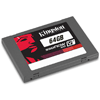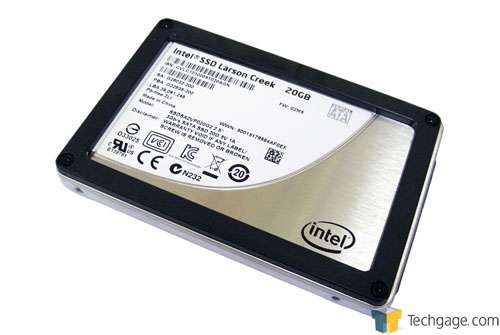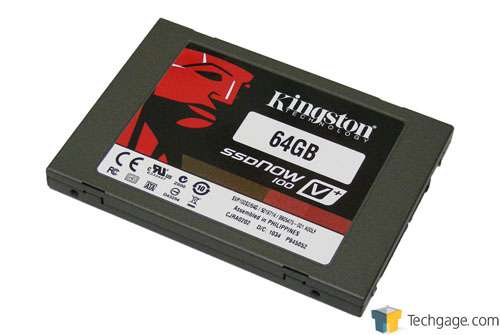- Qualcomm Launches Snapdragon 4 Gen 2 Mobile Platform
- AMD Launches Ryzen PRO 7000 Series Mobile & Desktop Platform
- Intel Launches Sleek Single-Slot Arc Pro A60 Workstation Graphics Card
- NVIDIA Announces Latest Ada Lovelace Additions: GeForce RTX 4060 Ti & RTX 4060
- Maxon Redshift With AMD Radeon GPU Rendering Support Now Available
Intel Z68 SSD Disk Caching Showdown

When we tested out Intel’s ‘Smart Response Technology’ last month, we liked what we saw. But at $110 for a 20GB SLC SSD, we wondered if a larger, more cost-effective option could still make the best use of the technology. With that, we’re pitting Kingston’s SSDNow V+100 64GB drive, at $150, against Intel’s, to see if we retain SRT’s effectiveness.
Page 1 – Introduction
Last month we had a look at Intel’s new disk caching technology available on the recently introduced Z68 Express chipset. Rapid Storage Technology (RST), as it’s called, allows data to be read from a standard mechanical hard disk drive (HDD) and then be cached or written to a solid-state drive (SSD) to be accessed again but at a much faster speed. There’s more to RST than just caching data, but I want to jump right into the purpose of this article.
RST did provide noticeable performance gains in some benchmarks but not all tests showed that this is a must-have technology. General usage was certainly speedier but disk caching is not an ideal solution for every user in every instance. In my opinion, RST is extremely useful for average folks like myself who access the same files and applications over and over, so this article is for them.
Intel had sent along its new 34nm 311 Larson Creek SSD to use during our initial testing. According to Intel, this 20GB drive was specifically made for caching data but it carries a hefty estimated $110 price tag due to the use of single-layer cell (SLC) NAND chips.
Even though SLC SSDs offer increased speed and lifespan, not many people will be willing to drop this amount of money on a drive with such a small storage capacity. But, there are many mainstream alternatives from other vendors, such as Kingston.
Our friends there were kind enough to send along their 64GB, 32nm multi-layer cell (MLC) NAND-based SSDNow V+100, which we are putting up against Intel’s offering in our RST SSD showdown to see if the SSD used to accelerate the HDD will really affect performance to a degree that it is noticeable to the user.
Without further ado, let’s get to the test setup and benchmark results and see how the two drives compare.
Support our efforts! With ad revenue at an all-time low for written websites, we're relying more than ever on reader support to help us continue putting so much effort into this type of content. You can support us by becoming a Patron, or by using our Amazon shopping affiliate links listed through our articles. Thanks for your support!






